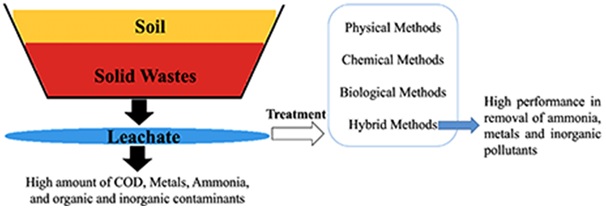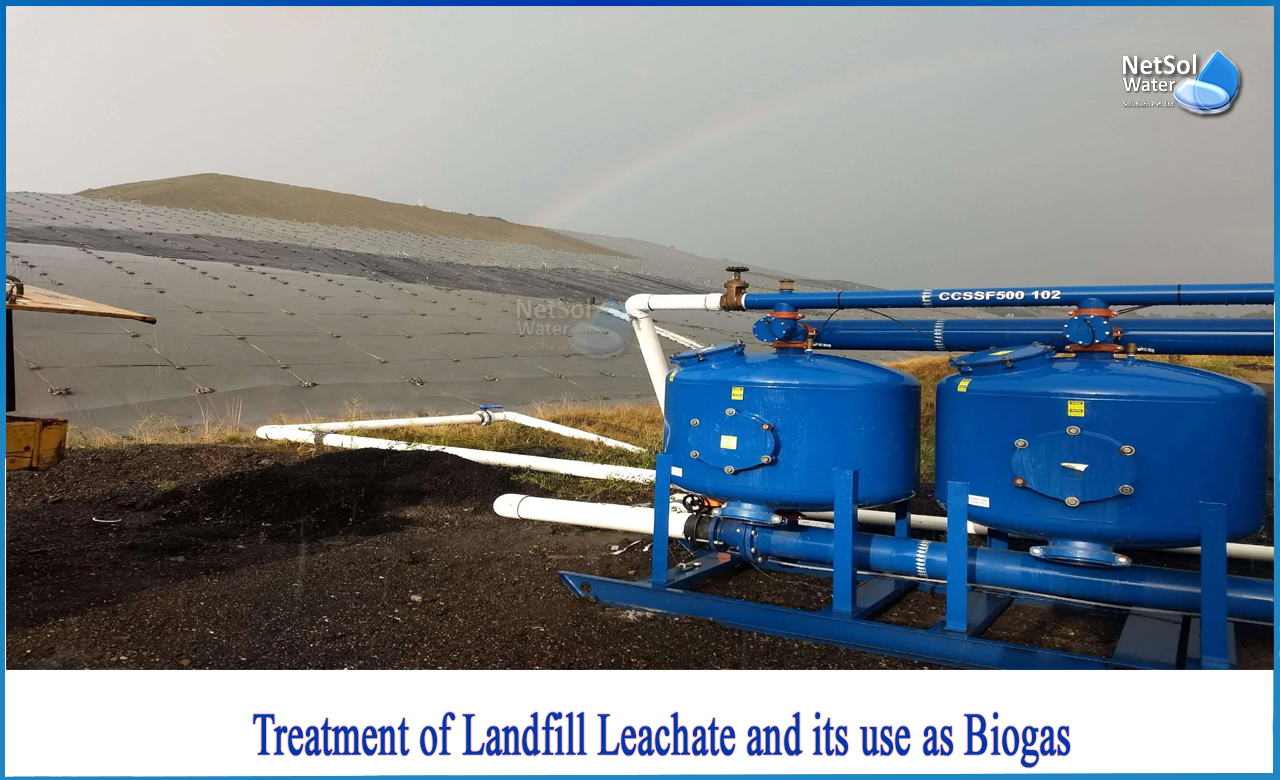How does Treatment of Landfill leachate and its use as Biogas?
Landfill leachate is characterized by a high chemical and biological oxygen demand, as well as the presence of unwanted organic and inorganic pollutants. The characteristics of landfill leachate vary depending on the decomposition process, climate, hydrology conditions and landfill age. Inadequate handling of landfill leachate is usually linked to environmental damage and health hazards.
Composition of Landfill-leachate
The pH of leachates from new landfills (less than two years) is low (4.5-7.5), while COD, BOD-5, nutrients, and heavy metal concentrations are high. However, in mature landfills (over 3 years), the leachates have a pH in the range of 6.5-7.5, and the COD, BOD-5, and nutrient levels have significantly decreased. The existence of significant quantities of ammoniacal nitrogen and dissolved salts is another constant (sulphates, chlorides, bicarbonates, etc). Heavy metals are occasionally identified in high concentrations. With the passage of time, the biodegradability (defined as the relationship between BOD-5 and COD) of the leachate declines. As a result, leachates from new landfills have a high biodegradability and can be handled effectively using a biological approach.
On the other hand, mature landfills produce low-biodegradable leachates that must be treated using physical-chemical methods. Furthermore, even when the overall flow to be treated is high, the pollutant load of the leachates – including the salts– is lower when the amount of rainwater that infiltrates the landfill is high.
Treatment Methods of Landfill-leachate
As the amount of waste produced grows, it becomes necessary to build new landfills, which has negative environmental consequences such as the production and release of landfill gases, which can cause strong odours, pollution, and explosive atmospheres, the emergence of health concerns, primarily insects and rodents, and the uncontrolled dumping of leachates, which can contaminate the superficial and subterranean soil and water.
A variety of treatments are available for treatment of leachate, including physicochemical (advanced oxidation processes, adsorption, coagulation/flocculation, and membrane filtering). Membrane bioreactors and integrated biological approaches, such as integrated anaerobic ammonium oxidation and nitrification/denitrification processes, have showed high ammonia and nitrogen removal efficiency of more than 90%.
Treatment of leachate with SBR + MBR + RO
A biological system with sequential batch systems (SBR) and membrane reactors (MBR) is generally employed, followed by a reverse osmosis membrane process that provides high-quality effluent. The waste generated by the membrane process, which is managed externally, frequently results in significant cost overruns. Vacuum evaporators are a sustainable option for significantly lowering these costs.
The biogas produced in landfills as a result of the anaerobic action of organic waste decomposition can sometimes be used to generate electrical energy via cogeneration motors; however, the thermal power is not employed and is lost to the atmosphere.On other occasions, the biogas is just flared instead of being utilized. In both circumstances, the thermal energy may be recovered by converting it to hot water (90oC) for use in vacuum evaporators, allowing the leachates to be treated efficiently and affordably without the employment of any extra equipment. The evaporators separate the water from the high-quality leachate, allowing it to meet the strictest discharge requirements.

Conclusion
When the laws for discharge into public waterways are the strictest, the leachates created in the landfill are normally treated with cutting-edge equipment. Membrane bioreactors are an efficient option among the several applicable biological processes since they may be specifically configured to the properties of the leachates to be treated and can treat high flows in relatively compact systems. Because the running expenses are low, these procedures are appropriate for any situation where a large volume of rainwater is mixed with the leachates.
Choose the best water and wastewater treatment experts!
Contact Netsol Water team now to learn more about how we can assist with your wastewater treatment options or to discuss your specific requirements for re-use and recycle.Make a phone-call at +919650608473 or contact via email at enquiry@netsolwater.com for further consultation or product purchase related query.



